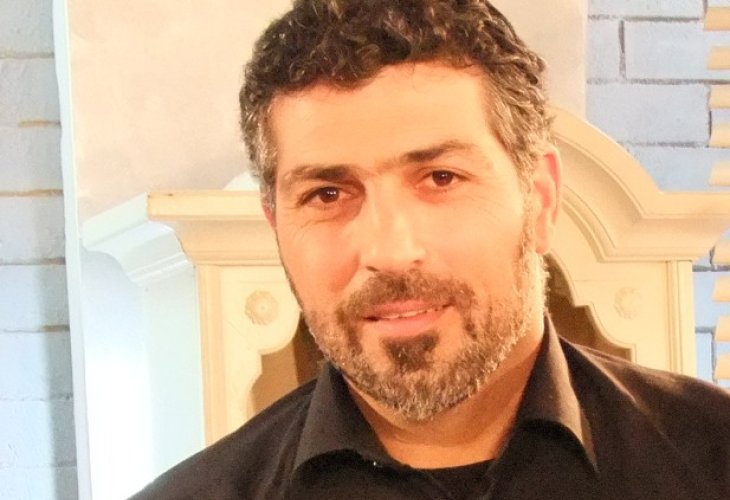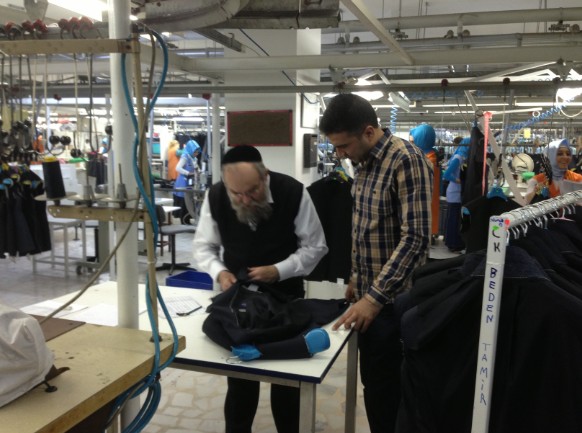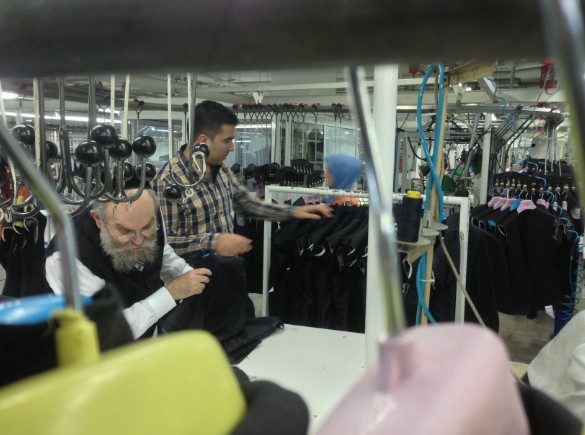Jewish Law
The Hidden World of Shatnez: Rabbi Yisrael Neumann’s Global Mission to Protect Kosher Clothing
Inside the rigorous textile supervision ensuring modern garments remain free of forbidden wool–linen mixtures

Rabbi Yisrael Neumann serves as the professional advisor to Israel’s Chief Rabbinate on matters of shatnez and oversees garment kashrut for the clothing company Bagir. His work involves a form of kashrut supervision that many people never think about: ensuring that clothing is free of forbidden wool–linen mixtures.
The Biblical Prohibition and Its Modern Relevance
The Torah prohibits wearing shatnez twice — once in Parashat Kedoshim and again in Parashat Ki Teitzei. Surprisingly, many people do not realize that such mixtures are still very common today. A suit or coat purchased without a label explicitly stating it is shatnez-free should be checked in one of the country’s shatnez laboratories.
A Unique Path Into the Textile World
“I took a rather unusual path,” Rabbi Neumann explains. “After yeshiva I studied at Shenkar College to understand the clothing industry deeply. I didn’t want to be a rabbi who simply says, ‘This is forbidden.’ I wanted to develop permissible production methods. My motto is that it is absolutely possible to manufacture beautiful, modern clothing without shatnez. It doesn't interfere with anything.”
After graduating from Shenkar, he interned at the Bagir factory. When he completed his internship, the manager asked him to stay and oversee all shatnez matters. To this day, he travels worldwide to supervise Bagir’s shatnez-free production.
How do you explain the prohibition of shatnez to non-Jewish workers in Italy or China?
“I tell them what the Netziv of Volozhin writes in Ha’amek Davar: shatnez harms the world because it goes against the laws of nature. That’s one reason I’m trying to change the black-and-red ‘shatnez-free’ label to a green one. According to Jewish tradition, shatnez is environmentally damaging.”
Rabbi Neumann recalls being in a high-end Italian suit factory producing 220 luxury suits for wealthy Jewish clients. When the head designer asked about shatnez, Rabbi Neumann explained the Netziv’s view. Two days later, during a farewell gathering, the designer asked: “Could the earthquake in Italy be connected to producing shatnez?” “I told him I could not link such an event to a specific cause, but later I thought: Oh no if the gentiles return to God before the Jews do…”

Why Sample Testing Isn’t Enough
Rabbi Neumann strongly opposes relying on sample testing: “We maintain full-time supervision funded by Bagir — no sampling and no approximations. The textile industry is dynamic. If a pattern shifts by two millimeters, someone needs to adjust the stitching. Each factory has a catalog of approved materials so they can prepare in advance, but nothing is sewn without me present.”
A Troubling Shortage of Shatnez Supervisors
Rabbi Neumann is worried about the lack of new professionals entering the field: “Factories don’t value the work properly, so the compensation isn’t attractive. And many religious Jews don’t realize how common shatnez is. A kollel invited me to speak after learning the laws of shatnez. One man insisted shatnez today is ‘rare’ — he’d never had a suit test positive. I asked what suits he bought. They were all from Bagir, which has my shatnez-free oversight. Of course they were clean because someone is ensuring it!”
Misleading Labels and Hidden Mixtures
“People don’t realize the scope of the problem. Women’s clothing often contains shatnez, especially in summer. Fabrics are often blends, and labels cannot be trusted. I once found linen in a garment labeled ‘100% wool.’ Sometimes the Hebrew and English labels contradict each other. A scarf once said ‘100% cashmere’ in Hebrew and ‘100% polyester’ in English. Even the Standards Institute says labels are not legally binding — they exist only for customs.”
Why Don’t More Clothes Come With Shatnez-Free Labels?
Because the public doesn’t demand it, Rabbi Neumann says.
“Why does ‘Chasalat’ have multiple kashrut certifications? Because consumers insist on it. If people cared enough about shatnez, manufacturers would ensure proper certification.”

A Mission Needing Successors
“Unfortunately, I don’t see someone ready to take over this work with pure intentions rather than financial motives. It is up to the observant community to demand that importers provide proper shatnez supervision. The responsibility lies in our hands.”

